Appeal Hearing: Prosecutor Attacks Judge's Decision, Which Blocked US From Extraditing Assange
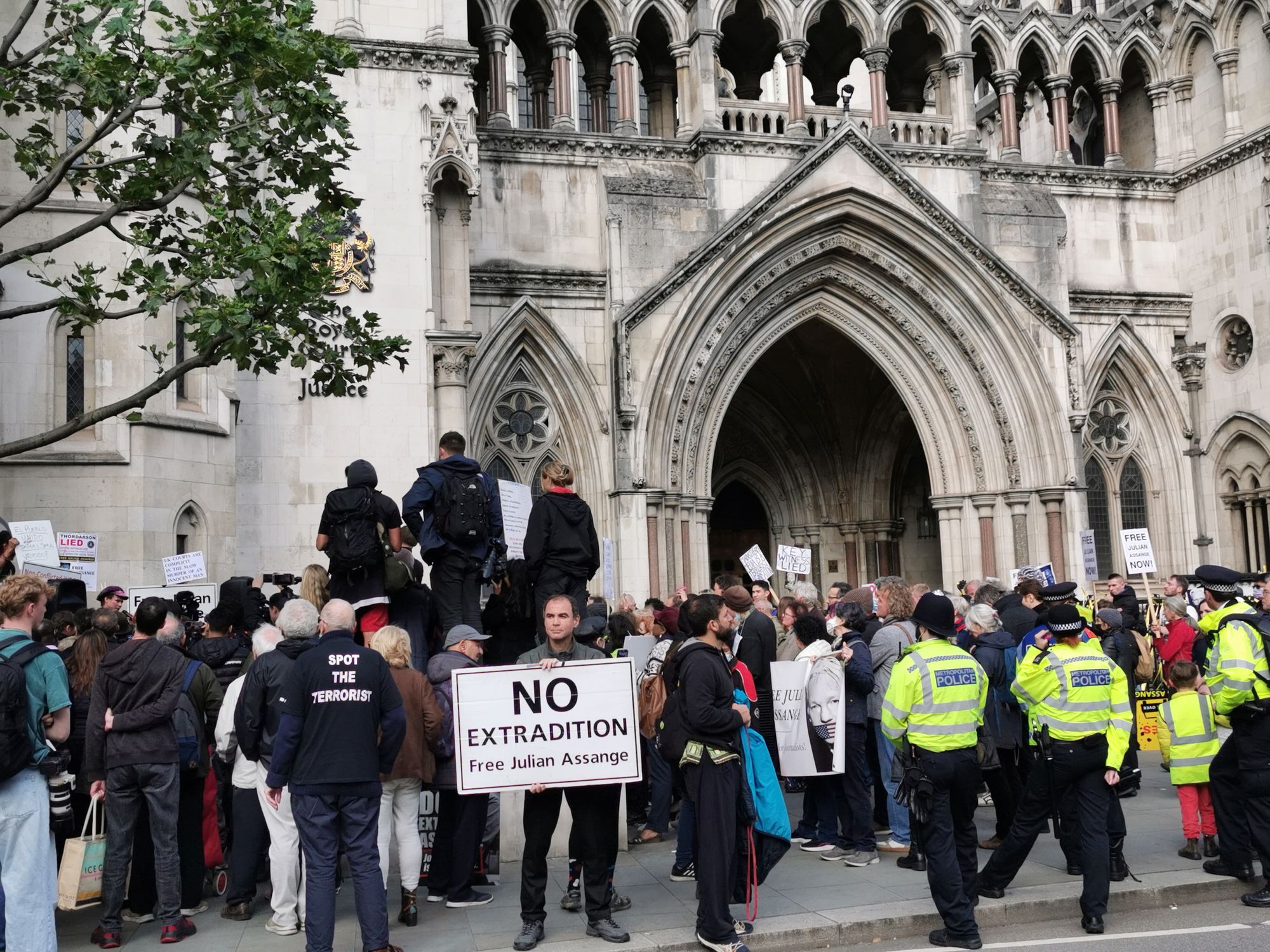
The Crown Prosecution Service, which represents the United States government, went before the British High Court of Justice and bashed the work of the district judge, who blocked the extradition of WikiLeaks founder Julian Assange in January.
James Lewis QC argued Judge Vanessa Baraitser approached the extradition law incorrectly when she focused on predicting "future uncertain events," which might result in a deterioration of his mental health. Baraitser wrongly assessed Assange's risk of suicide, and "she should have weighed crucial factors in the psychiatric evidence significantly differently."
He said the High Court should accept the appeal on the basis that the U.S. government offered "assurances" that Assange won’t be subjected to Special Administrative Measures (SAMs) or incarcerated in ADX Florence, a super-maximum prison in Colorado. Plus, key medical testimony offered by defense experts and accepted by the district judge should in fact have been rejected.
According to Lewis, if the law and facts had been "properly" construed by the district judge, there would only have been one outcome. The extradition of Assange would have been granted.
But Edward Fitzgerald QC, who is part of the Assange legal team, maintained it was inappropriate to scoff at the district judge's decision. The district judge issued a "carefully reasoned" and "carefully thought out judgment."
"I just wonder some time if my learned friend’s reading the same judgment as we are," Fitzgerald added, prodding Lewis.
Baraitser concluded it would be “oppressive to extradite" Assange to the U.S. because of his mental health condition. However, she kept him detained at the Belmarsh high-security prison while the U.S. government pursued their appeal.
Assange faces 18 charges, 17 of which are offenses under the Espionage Act. The law passed in 1917 has increasingly been wielded by the Justice Department against media sources, who disclose "classified" documents or talk about sensitive information with journalists, even if what they reveal is in the public interest.
During the court proceedings, Fitzgerald informed the High Court that Assange was not feeling well due to his medication. Yet close to an hour into the hearing, Assange appeared in a room at Belmarsh. He was wearing a white dress shirt and black necktie. He looked very tired and rested his head on his hand.
Later, Stella Moris, Assange's partner, claimed the court denied him permission to attend proceedings in person.
Chief Justice Lord Burnett of Maldon and Lord Justice Timothy Holroyde presided over the appeal hearing.
Lewis presented the following "grounds for appeal": the district judge improperly applied the United Kingdom's extradition law; the district judge should have sought assurances from the U.S. government after she decided to deny the request; the district judge ought to have disqualified a key psychiatric expert; the district judge erred when considering evidence of suicide risk; and the U.K. government was issued a package of assurances that address the problems the district judge detailed in her decision.
The prosecutor contended the U.S. government was allowed under the law to offer assurances at any time, and that it was standard in extradition cases. In fact, he insisted assurances are "binding" and to be trusted.
It is unclear how the U.S. government would be bound to abide by its pledges or what the consequences would be if they abandoned them.
Fanciful Pronouncements From Prosecutors
In advancing the assurance that Assange would not be designated for SAMs or imprisoned at ADX Florence, Lewis mentioned the Communications Management Units (CMUs) at Federal Correctional Institution Terre Haute in Indiana and the U.S. Penitentiary in Marion, Illinois, where drone whistleblower Daniel Hale, who pled guilty to violating the Espionage Act, was sent in early October.
Seeking to assure the High Court that CMUs would respect Assange's human rights, Lewis read from a declaration submitted by Gordon Kromberg, the Assistant U.S. Attorney in the Eastern District of Virginia who was the lead prosecutor in the Hale case. (Note: Kromberg has been the chief representative for the Justice Department's effort to secure extradition.)
"CMU inmates are afforded the same opportunities to communicate with individuals outside of prison as regular inmates," Kromberg stated. "Their communications may be more extensively monitored, however, or the BOP [Bureau of Prisons] may impose certain limitations, as noted in the Bureau Program Statement, to prevent them from engaging in additional criminal conduct."
When the BOP imposes "certain limitations," prisoners no longer have the same opportunities to communicate as "regular inmates." So Kromberg's characterization is misleading.
If Assange was in a CMU, he would likely be limited to two scheduled 15-minute phone calls per week. Those calls could be restricted to immediate family, and the prison could deny him a call if an FBI agent was not available to monitor his conversation.
The visitation policy for a prisoner in a CMU is harsher than the policy for SAMs. Contact visits are not allowed, meaning Moris and his children, Gabriel and Max, would not be able to hug or kiss him.
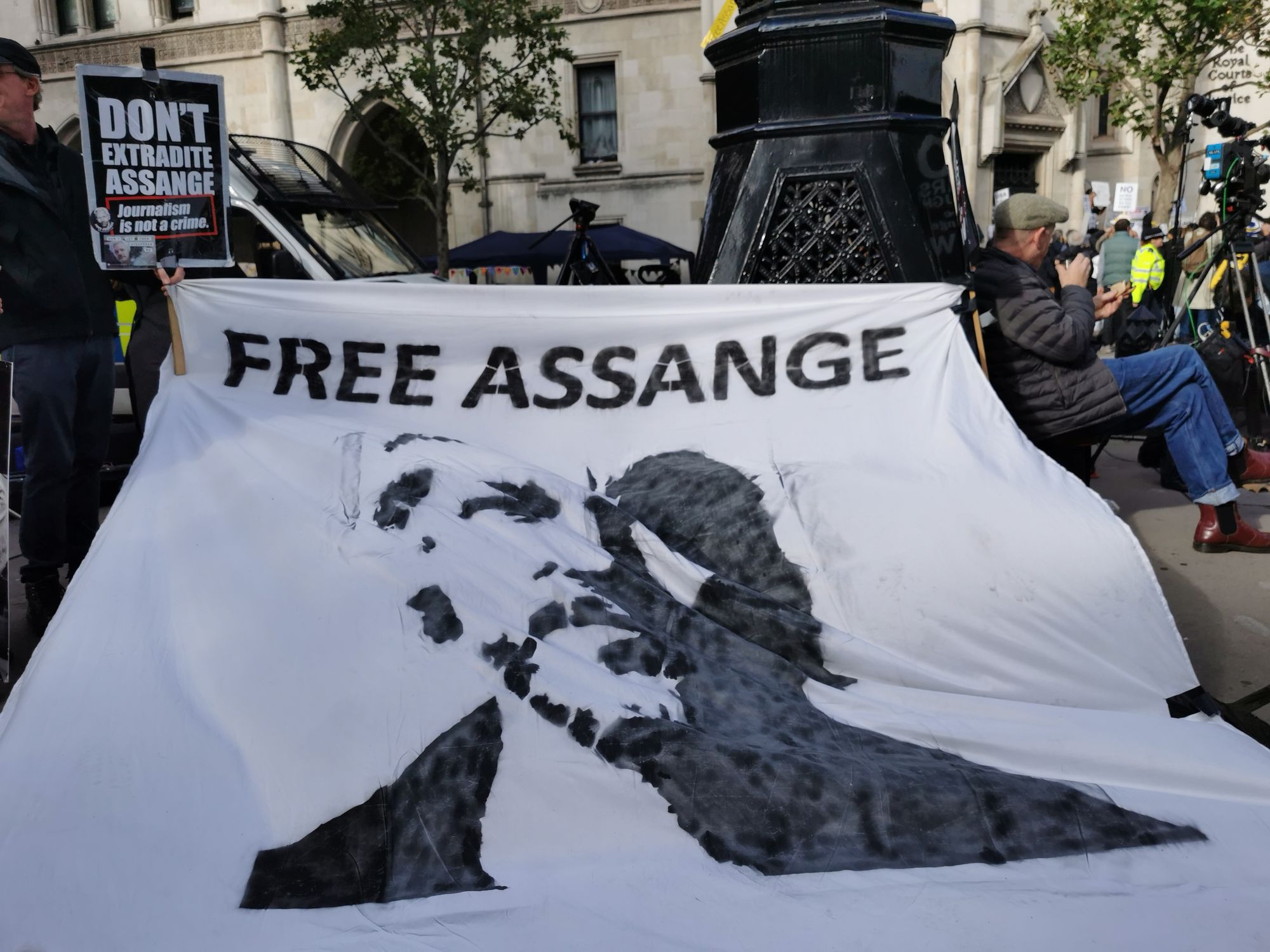
In spite of the assurance related to SAMs, Lewis still told the judges the U.S. government must be allowed to hold Assange in these restrictive conditions if they fear he could be responsible for a "breach" of "national security." Otherwise, he would have a "blank check to do whatever he liked, and those conditions could not be imposed."
The lead prosecutor raised the issue of sentencing, complaining that Assange's attorneys had supposedly exaggerated the potential sentence he could face if convicted. He touted the 45-month sentence against Hale and the 63-month sentence against NSA whistleblower Reality Winner as "lenient" and proof that Assange would not face a sentence that would effectively imprison him for the rest of his life. (Assange is 50 years-old.)
When one of the justices presiding over the hearing said it was possible he would not be sentenced at all if acquitted, Lewis put forward a rosy but unrealistic scenario, where Assange's legal team could apply for a "speedy trial," challenge the prosecution on First Amendment grounds, and then Assange would prevail and go free.
A number of defendants charged with Espionage Act violations have tried to challenge the constitutionality of using this law to punish unauthorized disclosures of information. There is little reason to believe Assange would succeed, where others have failed.
Additionally, someone charged with violating the Espionage Act does not apply for a "speedy trial" and move the government to expedite the case. Cumbersome classified information procedures must be followed. It could take one to two years to prepare all the evidence and witnesses for a trial.
The only way Assange would have his "speedy trial" rights respected is if he pleaded guilty to the charges or accepted some kind of a plea deal that would include prison time, but avoid a trial. That presumes the prosecutors would bargain with him.
Attempts To Discredit A Key Psychiatrist
During the extradition hearing in September 2020, Professor Michael Kopelman, the section head of neuropsychiatry at King's College London, advised the district judge that there was a “very high” risk Assange would attempt or commit suicide should he be extradited.
The district judge accepted Kopelman’s assessment as credible and reliable, and it formed a key part of her decision. Thus, Lewis focused a substantial amount of his argument on discrediting his analysis.
In Kopelman's initial report, the neuropsychiatrist failed to note that Moris—whom Kopelman interviewed as part of his assessment for the court—was also Assange’s partner and mother of two of his young children.
Although he ultimately noted this fact in his final report to the court, Kopelman was “actively misleading” when he omitted that crucial information, Lewis repeatedly stated.
“In our respectful submission this was not an honest statement of truth," Lewis said, referring to the declaration that all expert witnesses must sign in their reports. He argued that the district judge made a crucial error in “not taking that firmly into account” when considering Kopelman's psychiatric evidence.
Since Kopelman did not disclose the relationship to the district judge, Lewis argued she should have given his entire medical testimony “little to no weight." Then Baraitser would have had no alternative but to rely upon U.S. medical experts, who were not as confident of Assange’s suicide risk.
Throughout his oral submissions at the High Court, Lewis characterized Kopelman as a combative, even deceitful, figure who violated his oath to the court. He also described Baraitser as a judge, who inexplicably accepted and preferred Kopelman’s (and autism expert Dr. Quinton Deeley’s) findings over those of the U.S. experts.
The two senior High Court judges seemed sympathetic to the arguments, with one of them remarking that it appeared that the district judge may have considered the obligation of honesty owed by experts to be flexible.
However, Fitzgerald painted a very different picture during the brief time he had to respond to the prosecution.
The idea that Kopelman is “a lone wolf is absolute nonsense," Fitzgerald replied.
Fitzgerald noted Kopelman’s conclusions were supported by Deeley and “to a large extent” things he said were also supported by U.S.. expert Professor Fazel.
Moris made a similar point to The Dissenter. “It isn't true that there is real divergence between the doctors. They all accepted autistic traits, but the autism expert concluded and diagnosed [Autism Spectrum Disorder],” she explained.
“The U.S. doctors also accepted [that Assange] suffers from a major depressive disorder,” the point of divergence between the experts was a “matter of degree,” she said.
The district judge took the position that, although Kopelman’s failure to identify Moris as Assange’s partner was misleading, she was already aware of Moris’s identity at the time of reading the preliminary report and was not misled.
Baraitser concluded that it was a “very human response," given the witness testimony detailing the Spanish security company UC Global's espionage operation against Assange.
Kopelman took the matter of withholding Moris’ relationship seriously and was waiting for legal advice on the subject, Fitzgerald told the High Court.
The district judge “reasonably and justifiably concluded that Kopelman’s expert evidence was independent and impartial,” a finding that she was “fully entitled to make,” according to Assange’s lawyers.
In essence, Fitzgerald added, the U.S. government was re-litigating the case at the High Court before judges who have not had the benefit of 18 months of evidence, legal arguments, and extensive cross-examination of witnesses.
On October 28, Assange’s lawyers will have most of the day to fully respond to the U.S. government’s attempt to overturn the district judge’s decision.
Journalists @kgosztola, @SMaurizi, and @ChipGibbons89 have been covering the Julian Assange extradition appeal. Tomorrow after the conclusion of the High Court hearing, Defending Rights & Dissent will convene them for a report back moderated by @ryangrim https://t.co/ije6qrZL2c pic.twitter.com/aNrGgJqnnW
— Defending Rights & Dissent (@RightsDissent) October 27, 2021

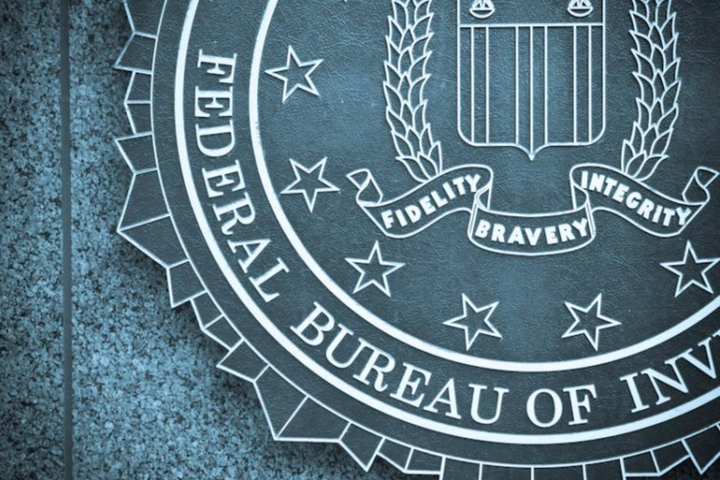
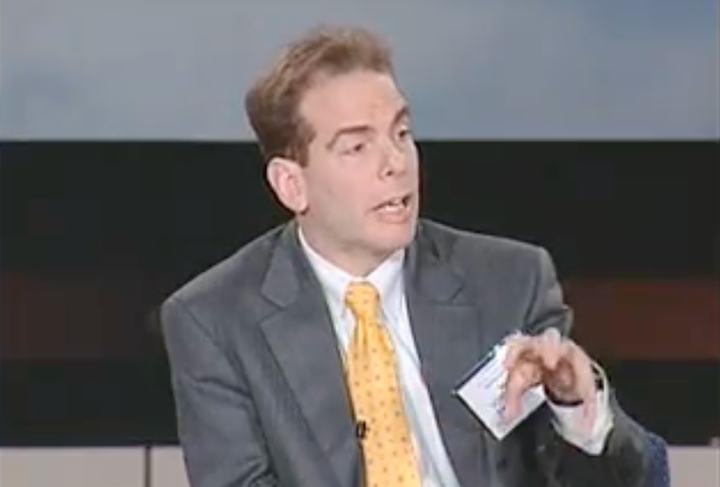
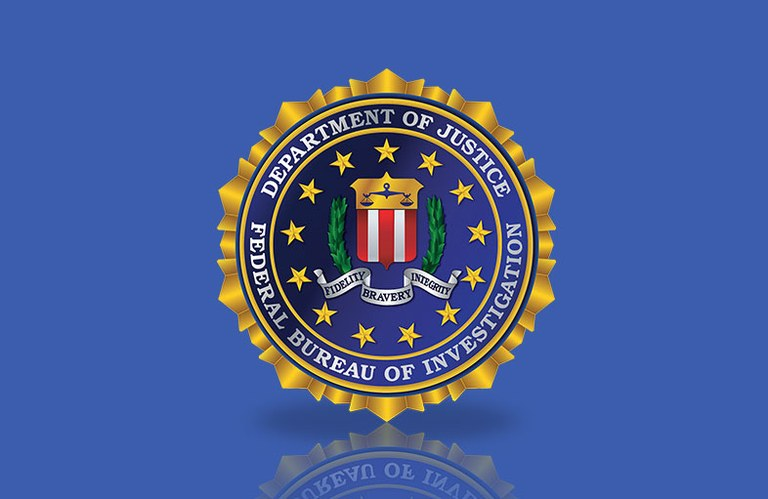
Comments ()